From its earliest days, Allens has been part of some of the most transformative moments in Australian history.
In the 1830s Sydney’s dark streets were a dangerous place to venture at night. While gas lighting had been recently introduced in London and Paris, Sydney remained in the dark. In a quest to bring both light and safety to the city's streets, an enterprising group of businesspeople worked together to bring gas lamps to Sydney. Founder George Allen was among them.
In September 1836 a prospectus was issued to form the Australian Gas Light Company, to bring about the 'lighting of this large, increasing, and opulent metropolis with gas'. George was listed as one of the founding directors and would go on to serve as the company's chairman from 1869 until his death in 1877.
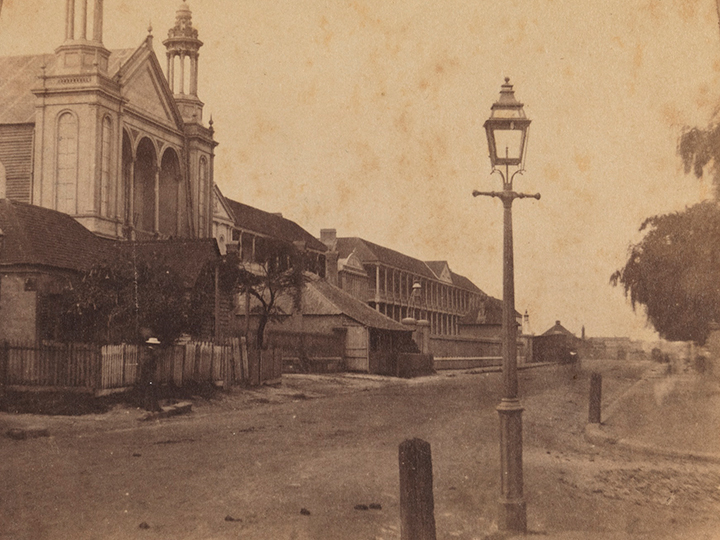
AGL was founded in 1837 to help bring about the 'lighting of this large, increasing and opulent metropolis with gas'.
The lighting of the first gas lamp on 24 May 1841 was coordinated with celebrations for Queen Victoria's 22nd birthday. Unfortunately George was not there to see the first lamp lit. He had wanted to share this significant moment with his family, however, as one of his horses was lame, he could not use the carriage and he did not wish to go if he could not take his children with him.
The Sydney Herald applauded the successful lighting of the lamps and paid tribute to those whose foresight and dedication to the task had brought it about:
'Having congratulated the public upon this brilliant era, we must not close without a word of congratulations to the Directors and shareholders of the Australian Gas Light Company. To them this must be a truly joyful work. Their outlay has been large – their difficulties innumerable – their delays apparently without end; but their reward has come at last; their arduous work has been brought to an honourable completion; they have conferred a splendid and permanent benefit upon their country; and we cannot doubt that their expenditure, their toils, their anxieties, and withal their exemplary patience, will be liberally recompensed by the "golden opinions" of their fellow-citizens.'
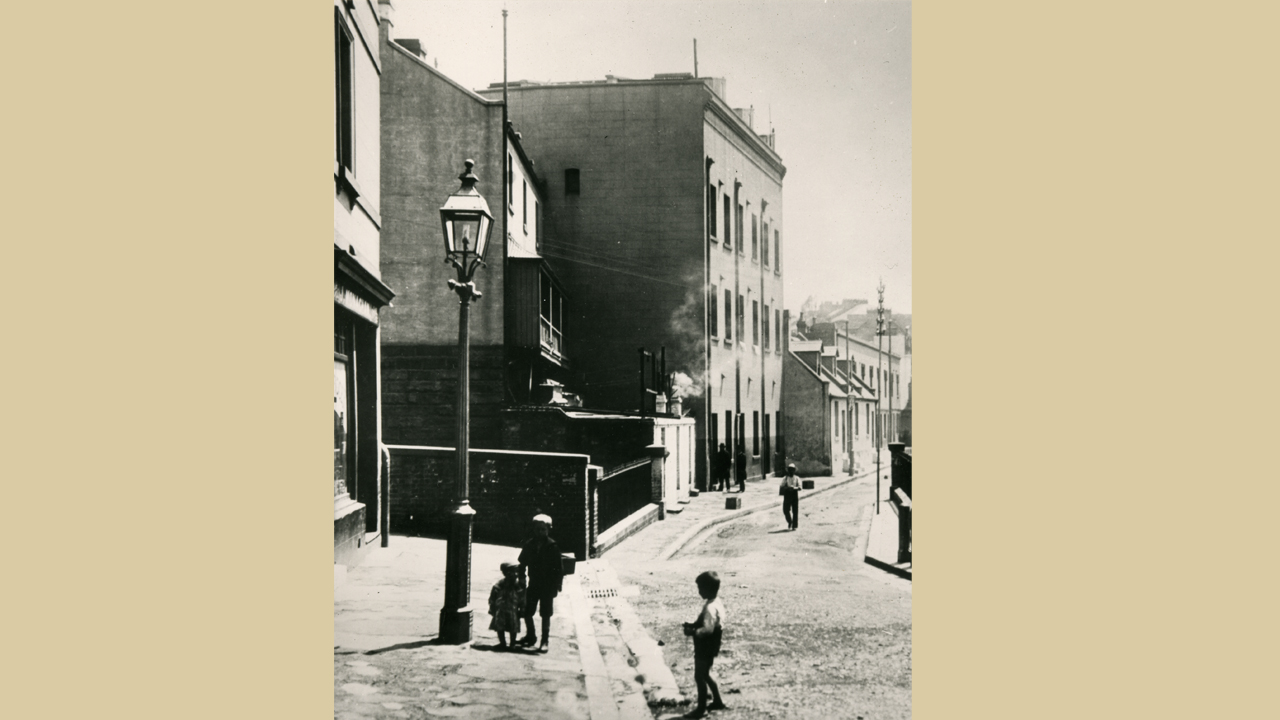
One of the early gas lights in Sydney. Courtesy of AGL.
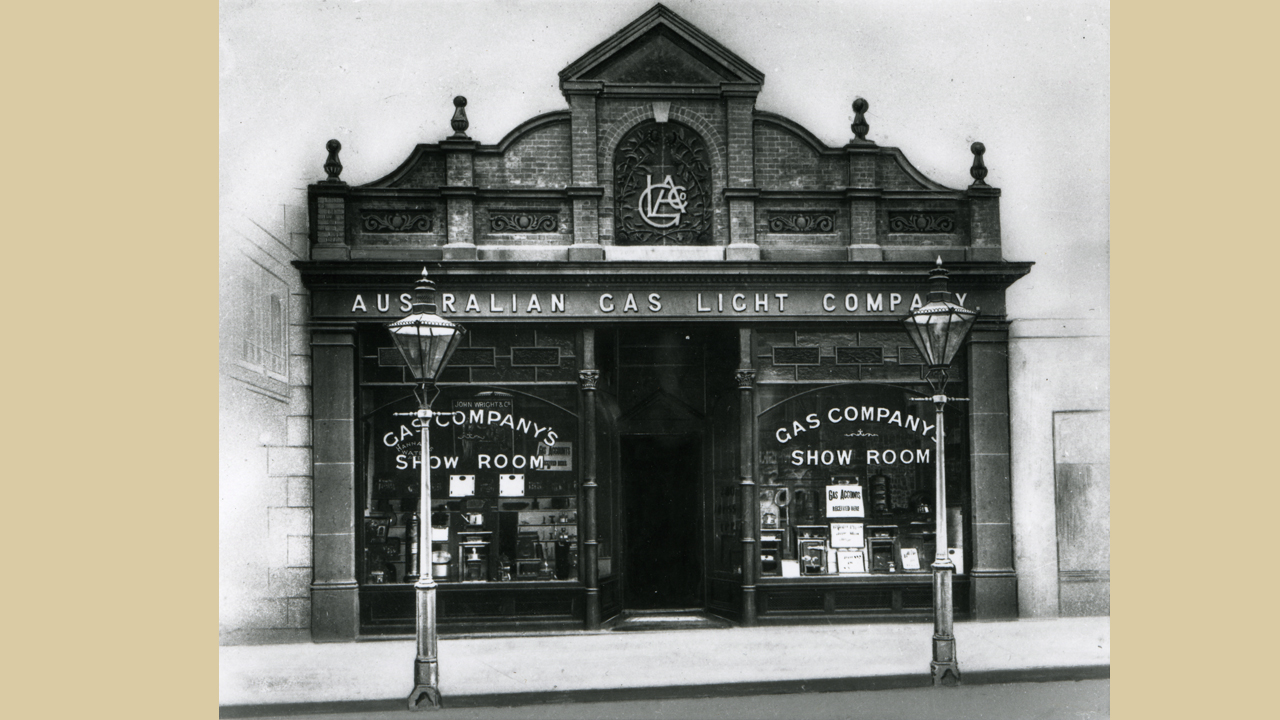
The Australian Gas Light Company showroom in Haymarket, Sydney, in the 1800s. Courtesy of AGL.
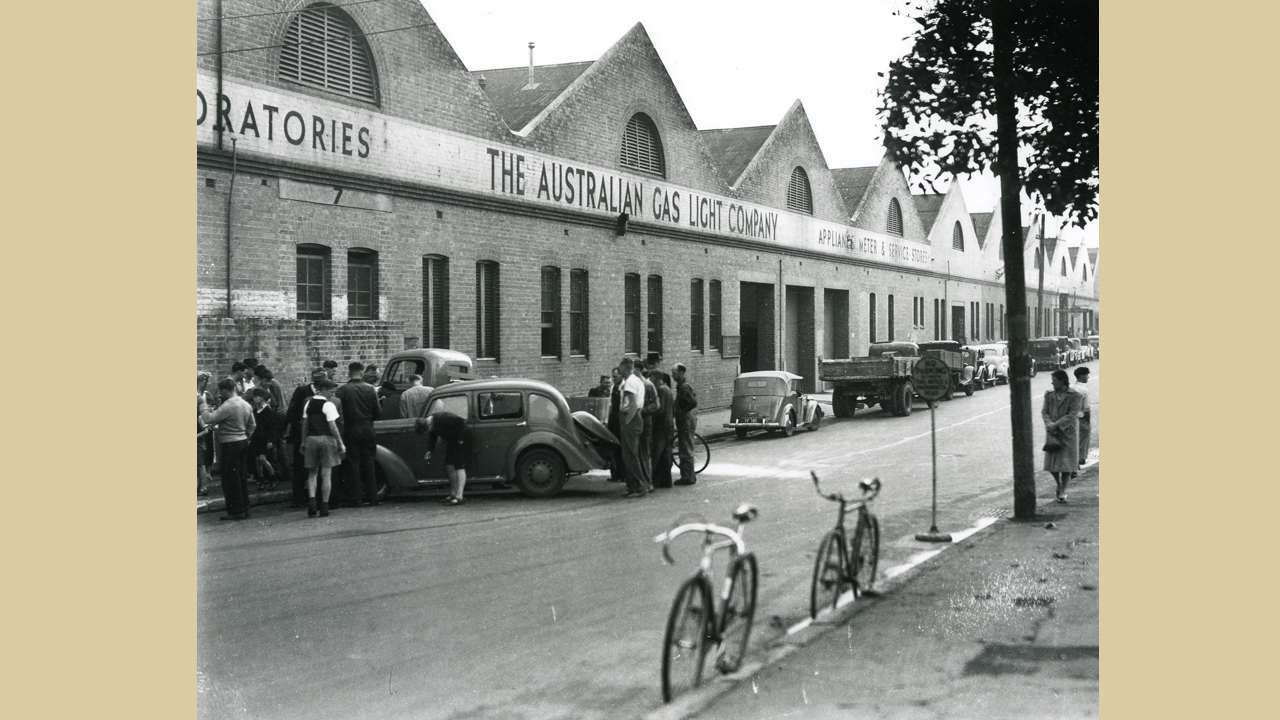
Australian Gas Light Company showroom. Courtesy of AGL.
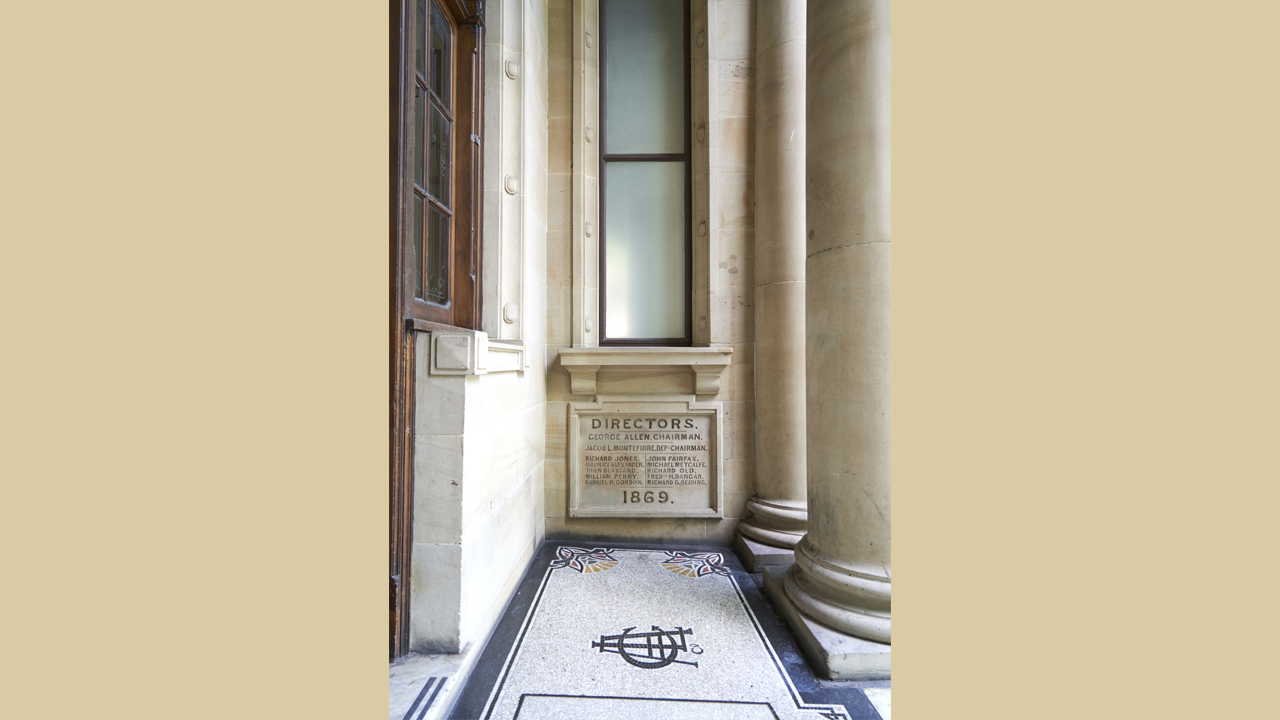
Sandstone plaque that still stands on the old Australian Gas Light Company building in Haymarket, noting George Allen as the chairman.
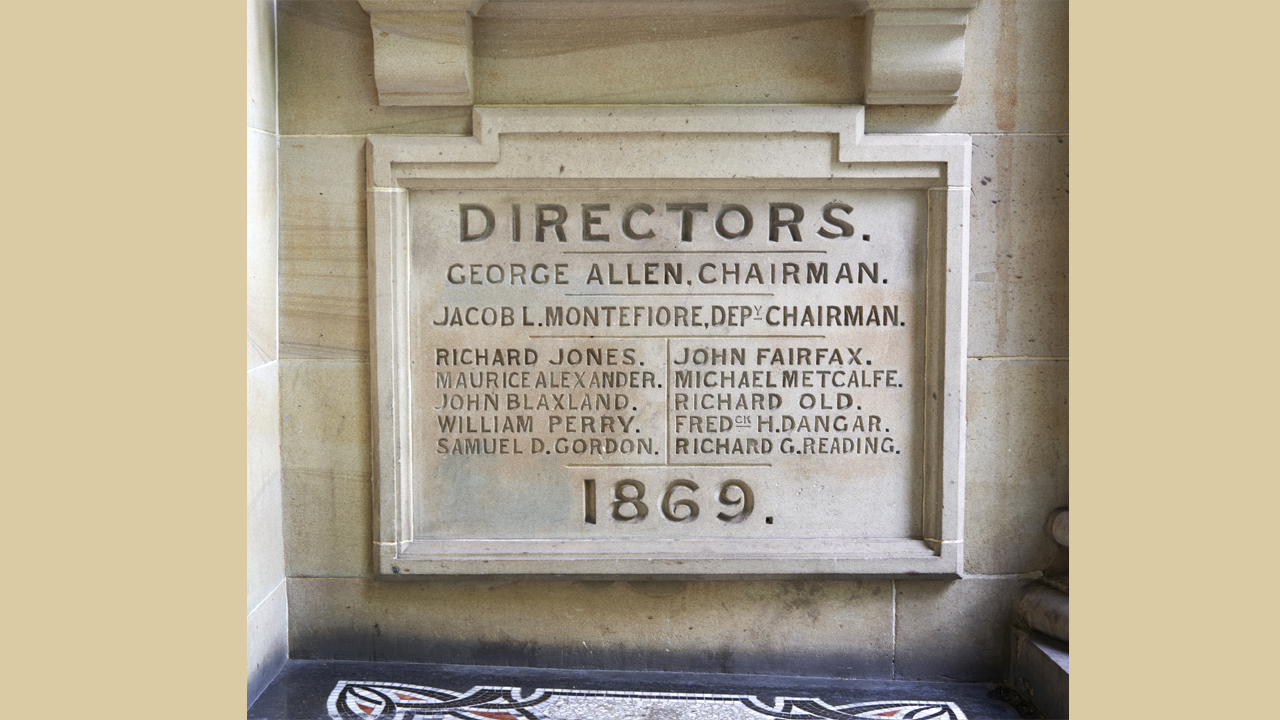
Sandstone plaque that still stands on the old Australian Gas Light Company building in Haymarket, noting George Allen as the chairman.
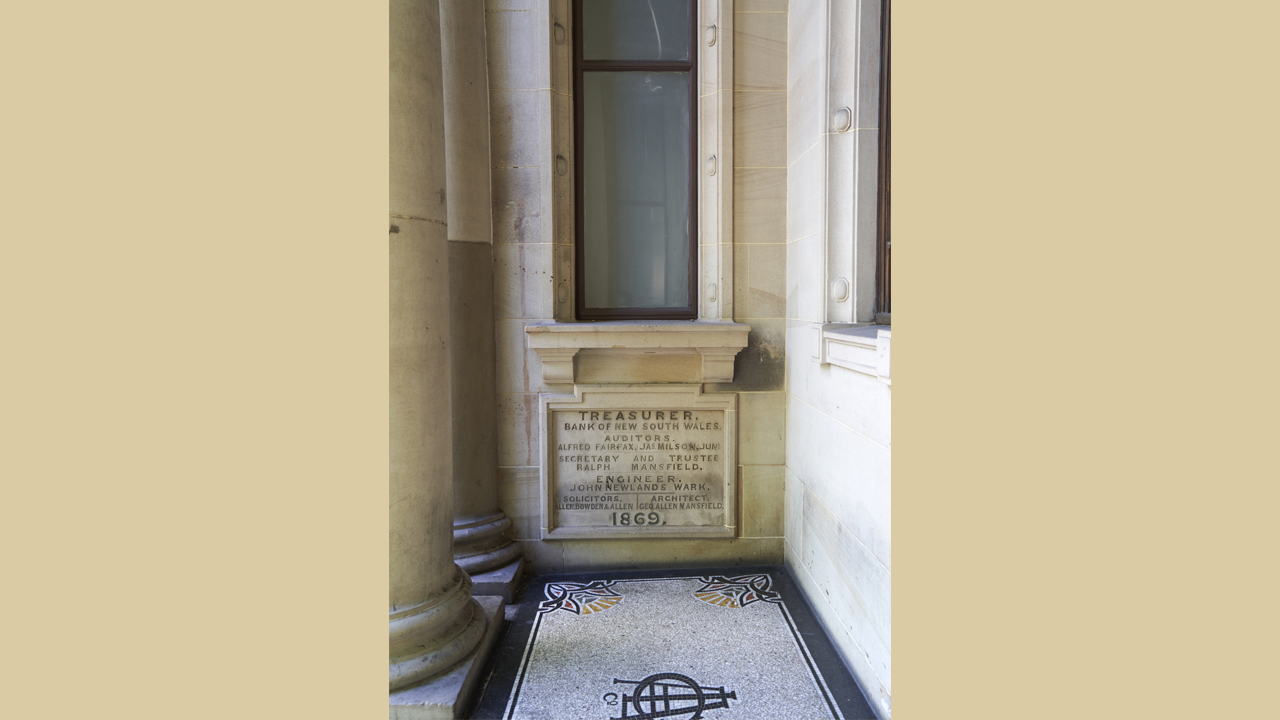
Sandstone plaque that still stands on the old Australian Gas Light Company building in Haymarket, noting Allen Bowden & Allen as the company's solicitor.
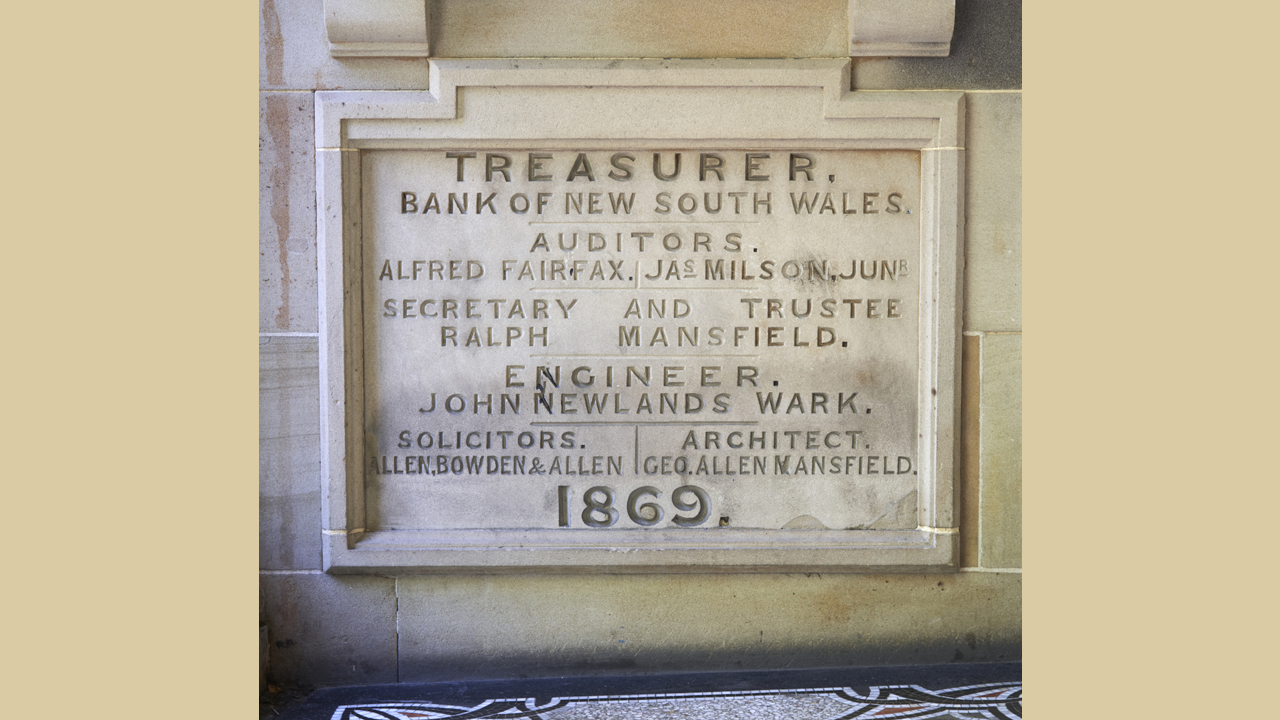
Sandstone plaque that still stands on the old Australian Gas Light Company building in Haymarket, noting Allen Bowden & Allen as the company's solicitor.
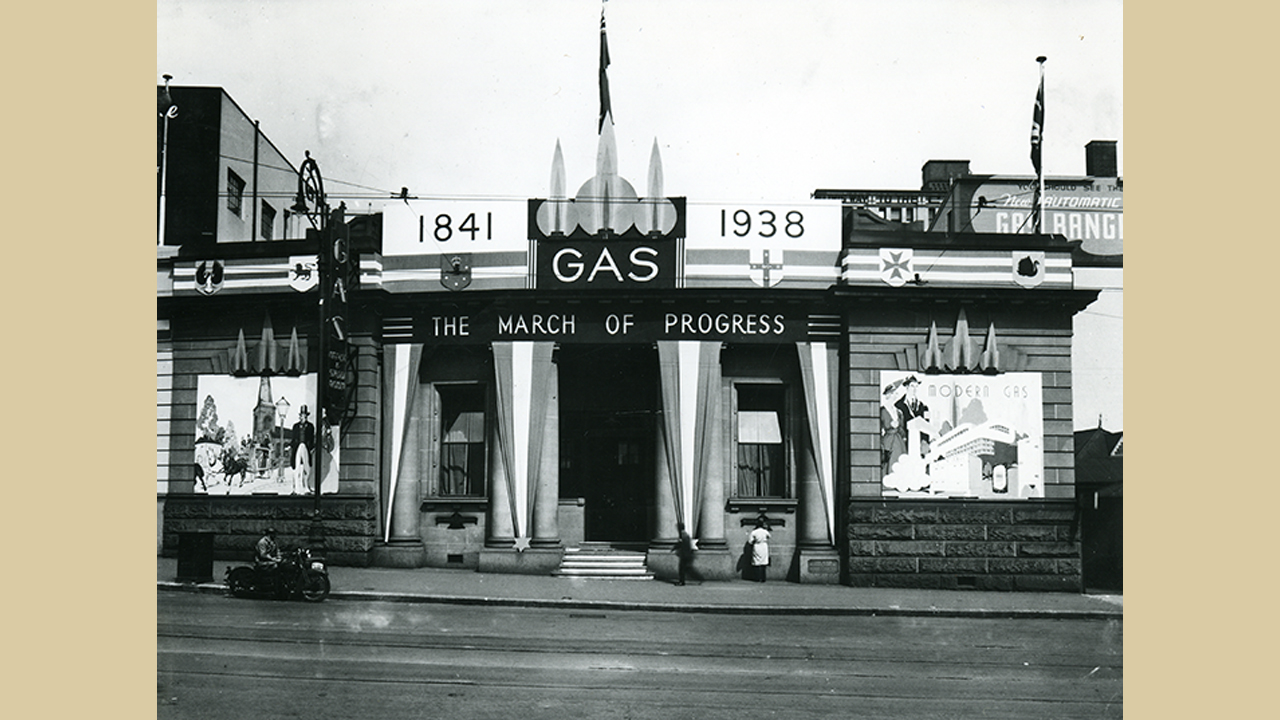
Australian Gas Light Company showroom. Courtesy of AGL.
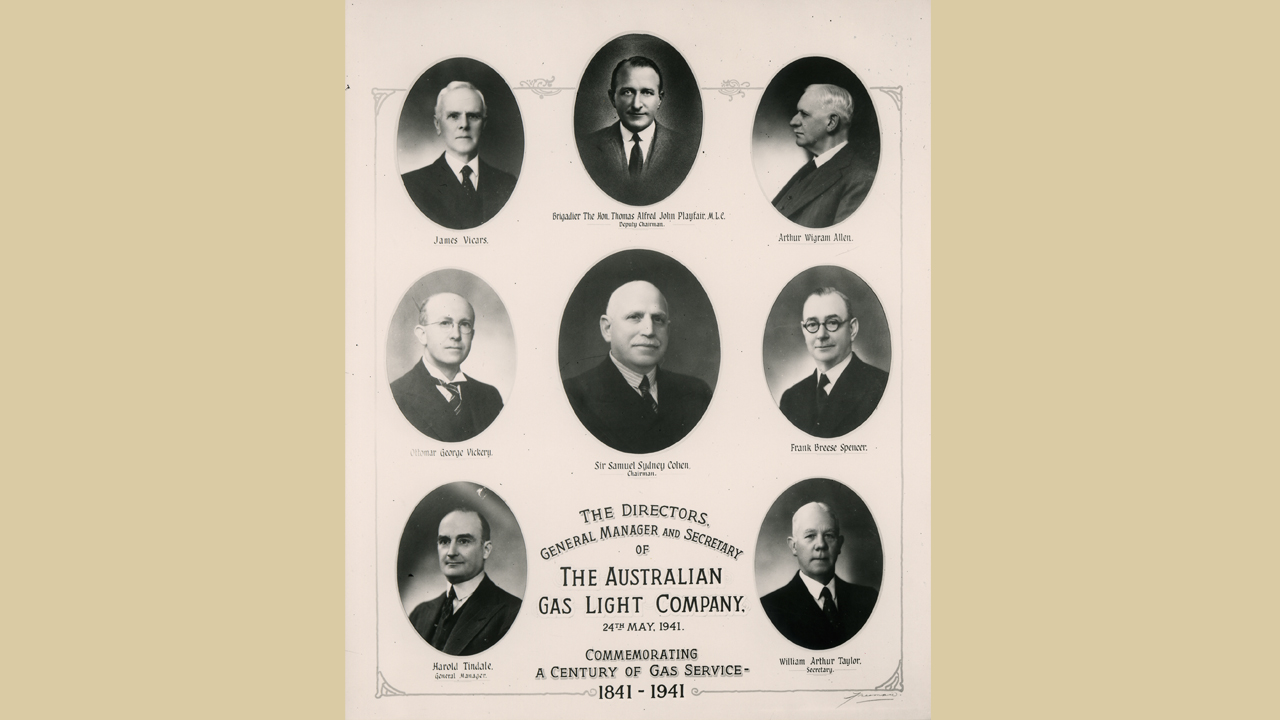
Australian Gas Light Company directors including Arthur Wigram Allen who was the senior partner of Allen Allen & Hemsley at the time. Courtesy of AGL.
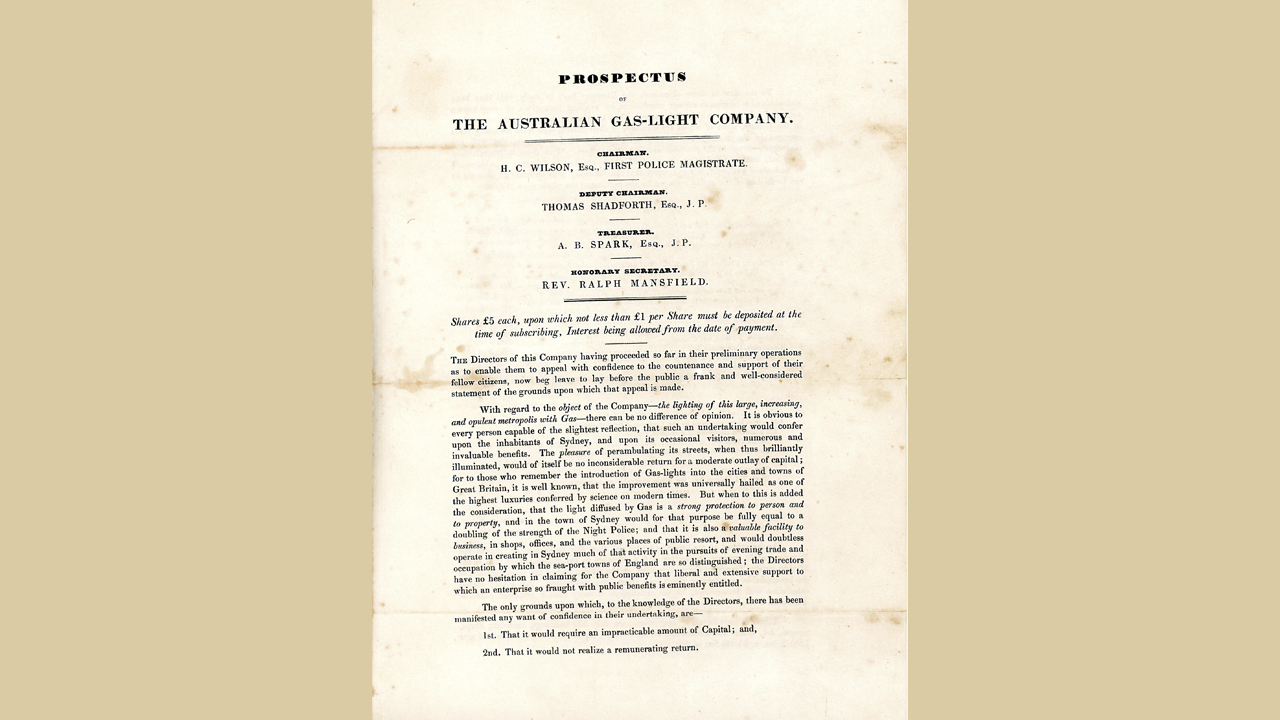
The Australian Gas Light Company prospectus from 1841. Courtesy of AGL.
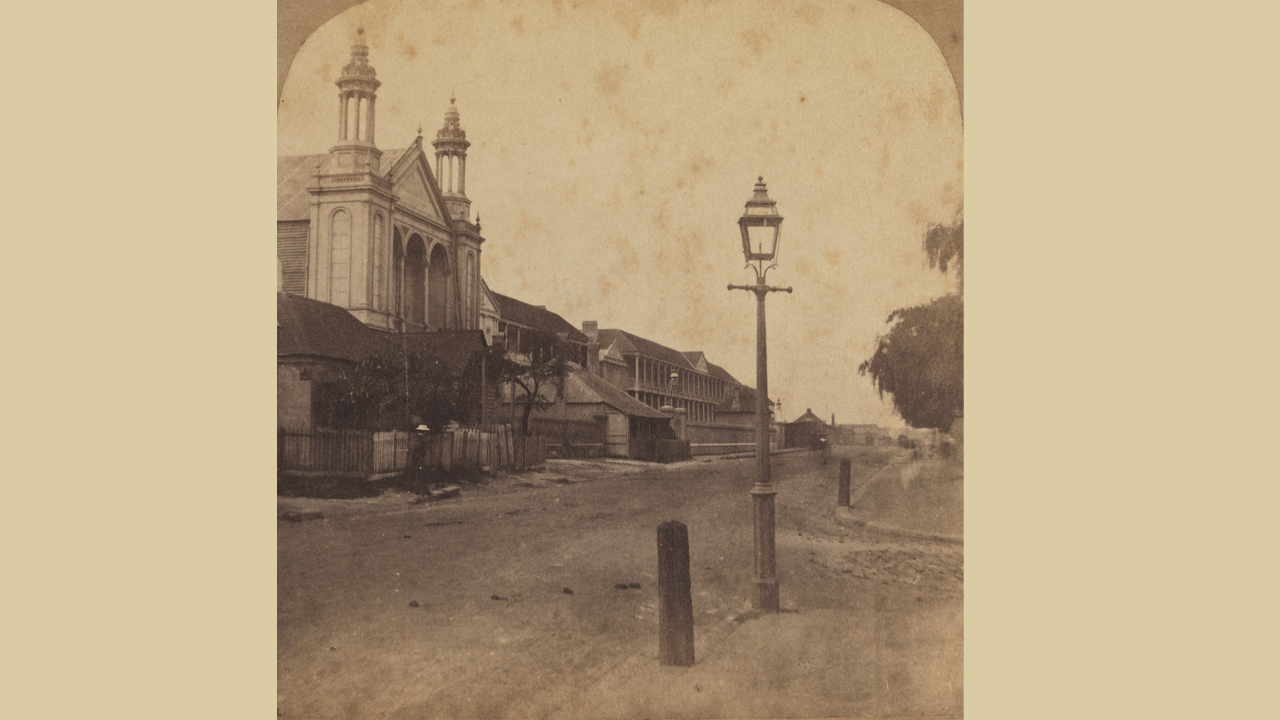
Macquarie Street, Sydney, 1859. Collection of State Library of New South Wales.
